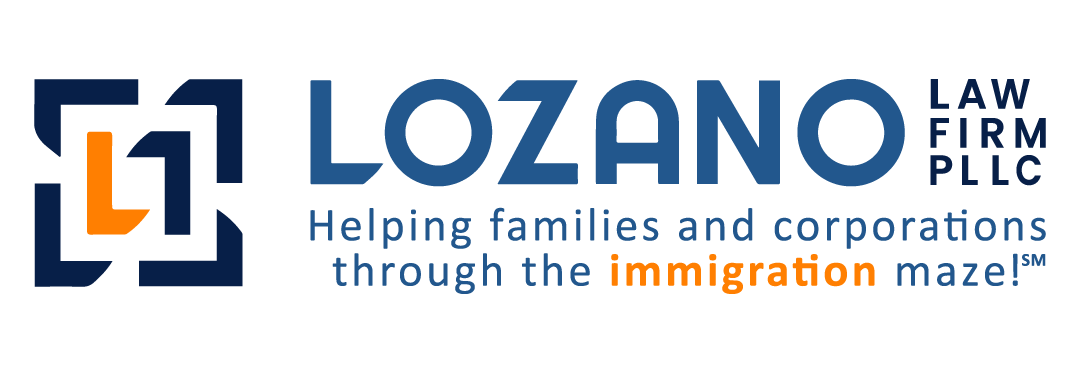The Violence Against Women Act (VAWA) offers protection to victims of domestic abuse, including spouses, parents, and children. It empowers them to self-petition for immigration status, a vital lifeline when abusers refuse to file on the victim’s behalf. Strong, well-documented evidence is key to a successful VAWA case.
This article clearly explains the types of evidence needed for a VAWA self-petition. It aims to empower victims seeking a safe and legal path to residency in the U.S., free from their abusers.
Overview Of VAWA Self-Petition Eligibility
To qualify for a VAWA self-petition, applicants must fulfill specific requirements. VAWA protects individuals abused by a U.S. citizen or lawful permanent resident spouse, parent, or adult child. Petitioners themselves must be victims of battery or extreme cruelty. They must have lived with their abuser.
Applicants must demonstrate good moral character. Residency requirements are another key factor in eligibility. The applicant must prove that they meet all these criteria and provide clear and convincing evidence.
Strong evidence is essential for meeting these stringent requirements. This evidence must document the abuser’s actions and establish the victim’s eligibility for VAWA protection. Thus, petitioners must present a compelling case, show they suffered abuse, and demonstrate that they meet all other qualifications.
The process can be complex and requires careful attention to detail. Gathering the proper evidence is critical because the petitioner has the burden of proof. The evidence must convince immigration officials that the petitioner is eligible for VAWA protection. The quality and quantity of proof submitted determine the success of the petition.
Demonstrating an abusive relationship is often the most challenging part of a VAWA case. There are various types of evidence an applicant can use to prove it.
Proof Of The Abuser’s Status
To file a VAWA petition, you must prove that your abuser is a U.S. citizen or lawful permanent resident. Without this evidence, USCIS cannot verify your eligibility. Acceptable documentation includes copies of the abuser’s birth certificate, U.S. passport, naturalization certificate, or green card.
If you do not have direct access to these records, you can obtain them through public databases or legal requests. If official documents are unavailable, previous immigration paperwork, tax returns, or employment records listing the abuser’s status may be helpful. Affidavits from individuals familiar with the abuser’s background can also support your case.
Understanding the evidence needed to prove the abuser’s actions and the resulting harm is essential for a strong VAWA self-petition. However, success requires more than that. A key component of the petition is establishing a legal relationship with the abuser.
Proof Of A Qualifying Relationship
To qualify under VAWA, you must provide clear proof of your relationship with the abuser. Spouses need a valid marriage certificate, while children and parents must provide birth or adoption records. If documents are unavailable, alternative evidence may be necessary.
Joint financial records, such as bank statements, tax filings, and shared property deeds, strengthen the case for spouses. Wedding photos, invitations, and affidavits from friends or family members can also support the claim of a legitimate marriage.
For parent-child relationships, birth certificates listing both names provide primary evidence. School records, medical documents, or insurance policies that show the abuser as a parent may also be useful. If the relationship involves legal guardianship, court records can help prove eligibility.
If official documentation is missing, affidavits from people familiar with your relationship with the abuser can serve as supporting evidence. Statements from community members, teachers, or religious leaders may reinforce your claim.
Establishing a legal relationship with the abuser is a fundamental requirement for a VAWA self-petition. Beyond this, the petitioner must also prove they lived with the abuser, a critical factor in building a strong case.
Proof Of Co-Residence During The Abuse
Residing with the abuser is a key requirement for a VAWA self-petition. Petitioners must prove they lived with their abuser. It demonstrates the close relationship and the context of the abuse. Several types of evidence can establish co-residence.
-
- Lease Agreements. Documents showing both the petitioner and the abuser as tenants are strong evidence. These agreements link both parties to the same address. They establish a shared living space.
- Utility Bills. Bills addressed to both parties at the same address are helpful. These bills can include electricity, gas, or water and demonstrate shared household expenses.
- Mortgage Documents. Documents showing joint ownership are valuable. These could be mortgage statements or property deeds. They indicate shared financial responsibility for the residence.
- Joint Bank Accounts. Applicants can use bank statements showing that both parties share the same address. These accounts demonstrate a financial connection. They further support the claim of co-residence.
- Affidavits From Neighbors. Statements from neighbors can confirm co-residence. These affidavits should be detailed and specific. They add corroborating testimony.
- Mail. Mail addressed to both parties at the same address, including letters, packages, or other official mail, is applicable. It demonstrates that both individuals received mail at that location.
Other documentation, such as driver’s licenses and insurance documents, can be helpful. These often list the same address for both parties. Other official documents may also serve as supporting evidence.
The next critical step is demonstrating that the abuse happened. This is often the most challenging aspect of a VAWA case. The following section will explore the various types of evidence to prove the existence of an abusive relationship.
Ways To Prove That The Abuse Occurred
Proving abuse is critical in a VAWA self-petition. Petitioners must establish a pattern of mistreatment, as a single incident may not be enough. Immigration officials look for a history of physical, emotional, or financial abuse. Various forms of evidence can help demonstrate this pattern.
Personal Testimony
A detailed statement from the petitioner is essential. It should describe specific incidents, including dates, locations, and the nature of the abuse. A clear and consistent narrative strengthens the application. This personal account forms the foundation of the claim and helps immigration officials understand the case.
Witness Testimony
Affidavits from family, friends, neighbors, or professionals provide strong support. Witnesses who have observed the abuse firsthand add credibility. Testimonies from therapists, coworkers, or community members can further reinforce the petitioner’s claims and offer additional perspectives on the abusive relationship.
Law Enforcement Records
Police reports, protective orders, and arrest records serve as critical evidence. These official documents confirm interactions with law enforcement regarding the abuse. Incident reports, restraining orders, and court records establish a documented history that supports the petitioner’s case.
Medical Records
Medical documentation helps prove physical abuse. Hospital records, doctor’s notes, and treatment histories provide objective evidence of injuries. Photos of bruises, fractures, or other harm, along with medical assessments, can illustrate the severity of the abuse.
Mental Health Records
Therapists’ notes and psychological evaluations document emotional abuse. Diagnoses of anxiety, depression, or post-traumatic stress disorder (PTSD) can indicate the lasting effects of mistreatment. These records highlight the psychological impact and help establish the long-term consequences of the abuse.
Photographs & Videos
Visual evidence can be compelling in a VAWA case. Photos of injuries, property damage, or destroyed belongings can illustrate the abuse. Videos capturing verbal threats or violent behavior provide additional proof. Date and time stamps enhance the credibility of this evidence.
Financial Records
Proof of financial abuse is essential. Bank statements, pay stubs, and withheld funds can demonstrate economic control. Records showing unauthorized transactions, restricted access to money, or coerced financial decisions further establish a pattern of financial manipulation and dependence.
Other Documentation
Emails, text messages, and voicemails often reveal patterns of abuse. Social media posts showing threats, humiliation, or control can also be evidence. Proper authentication of these communications is essential to validate their relevance in the self-petition process.
Presenting a clear pattern of abuse is essential. Petitioners should gather all available evidence. This evidence must support their claims and demonstrate the abusive relationship. A strong case relies on multiple forms of corroborating evidence. Lozano Law Firm supports you in building a strong case.
Lozano Law Firm Assists With VAWA Self-Petitions
At Lozano Law Firm, we understand how complicated this process can be. We provide compassionate legal support for those filing VAWA self-petitions. Our team helps gather evidence, prepare petitions, and ensure all documentation meets USCIS requirements.
Our team understands the sensitive nature of these cases and provides compassionate, dedicated representation. We carefully analyze each client’s unique situation and develop a tailored strategy to maximize their chances of success.
We are with you every step, from gathering evidence to preparing your application and representing you before USCIS. Everyone deserves a safe and secure future, and we are here to fight for your rights. If you need help with your VAWA self-petition, contact us today. Our team is ready to assist you.
Filing a VAWA self-petition requires strong evidence. You must prove your relationship with the abuser, shared residence, and abuse endured. Demonstrating good moral character is also necessary. Proper documentation strengthens your case and increases approval chances.
If obtaining evidence is challenging, legal representation can help. At Lozano Law Firm, we provide VAWA applicants with personalized legal guidance. Our dedicated team guides clients through the immigration process and helps them secure the protection they deserve.

 Thank you for contacting us. Please complete this form and one of our team members will be in touch with you soon.
Thank you for contacting us. Please complete this form and one of our team members will be in touch with you soon.



